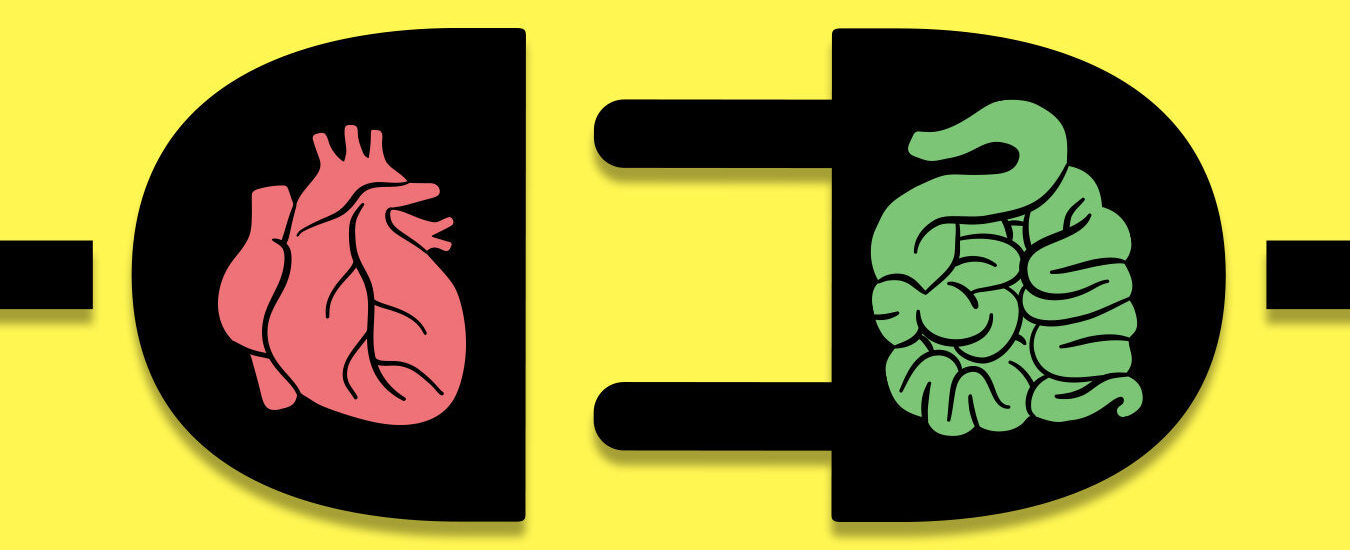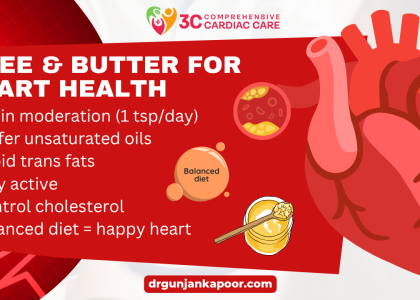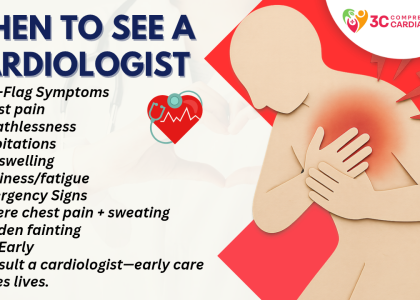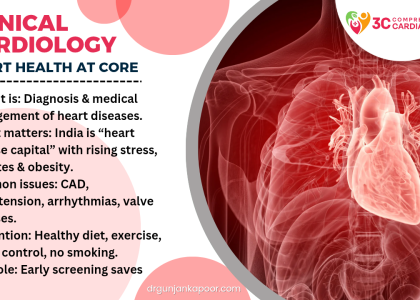When we talk about heart health, the usual suspects like cholesterol, blood pressure, and stress often come up. But here’s something that might surprise you: your gut health also has a profound impact on your heart. As a cardiologist, I’ve seen how closely the gut and heart are connected. Let’s dive into how your gut can influence your heart health and what you can do about it.
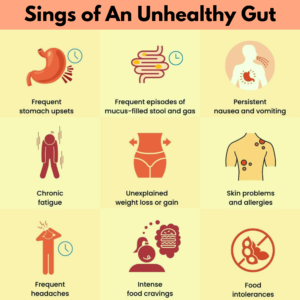
How Your Gut Talks to Your Heart
Your gut isn’t just there for digestion—it’s home to trillions of bacteria that play a crucial role in overall health. This community of bacteria, known as the gut microbiome, affects everything from your immune system to your mental health. But did you know it also impacts your heart?
When your gut is balanced with good bacteria, it helps protect your heart. However, when things go off-balance, your gut can produce harmful substances like trimethylamine N-oxide (TMAO). Studies have found that people with higher TMAO levels have a greater risk of heart disease, as it contributes to the build-up of plaque in your arteries. In fact, research from the Cleveland Clinic has shown that high TMAO levels can increase your risk of heart attack and stroke by up to 60%.
Gut Health and Inflammation: A Dangerous Duo for Your Heart
Inflammation is part of your body’s defense system, but when it becomes chronic, it can wreak havoc on your heart. An unhealthy gut can lead to something called “leaky gut syndrome,” where harmful bacteria and toxins leak into your bloodstream. This triggers inflammation, which over time, can damage your arteries and set the stage for heart disease.
According to a study by AIIMS, people with high levels of inflammatory markers like C-reactive protein (CRP) are at a much higher risk for heart disease. When you keep your gut healthy, you’re helping to reduce inflammation and protect your heart.
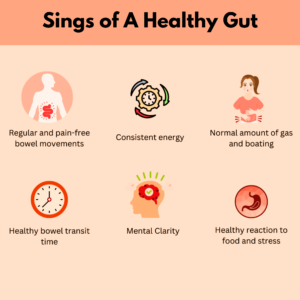
The Role of Diet in Gut and Heart Health
What you eat plays a huge role in the health of your gut—and, by extension, your heart. Diets high in processed foods, sugar, and unhealthy fats can disrupt your gut bacteria, increasing your risk of heart disease. On the other hand, a diet rich in fiber, fruits, and vegetables helps nourish the good bacteria in your gut, which can benefit your heart.
The Mediterranean diet, which is packed with heart-healthy fats and fiber, is a great example. It not only supports a healthy gut but also reduces the risk of heart disease by around 30%. Adding fermented foods like yogurt, kimchi, and sauerkraut to your meals can also boost your gut health by supplying beneficial bacteria.
Practical Steps to Boost Gut and Heart Health
Taking care of your gut doesn’t have to be complicated. Here are some simple tips that can benefit both your gut and your heart:
1. Eat a Balanced Diet: Fill your plate with fiber-rich foods like whole grains, beans, and vegetables. Avoid too much sugar and processed foods.
2. Include Probiotics: Probiotics are good bacteria that help balance your gut. You can find them in foods like yogurt or take them as a supplement.
3. Exercise Regularly: Physical activity not only strengthens your heart but also promotes a healthy gut. Aim for at least 30 minutes of exercise most days.
4. Manage Stress: Chronic stress can harm both your gut and your heart. Practice relaxation techniques like deep breathing, meditation, or yoga to keep stress in check.

Conclusion
Your gut and heart are more connected than you might think. By nurturing your gut health, you’re not just improving digestion but also giving your heart a boost. Making small changes to your diet, staying active, and managing stress can help you build a healthier gut—and a healthier heart. Remember, every step you take towards a healthier lifestyle counts, so start today!
Click here for previous blog

